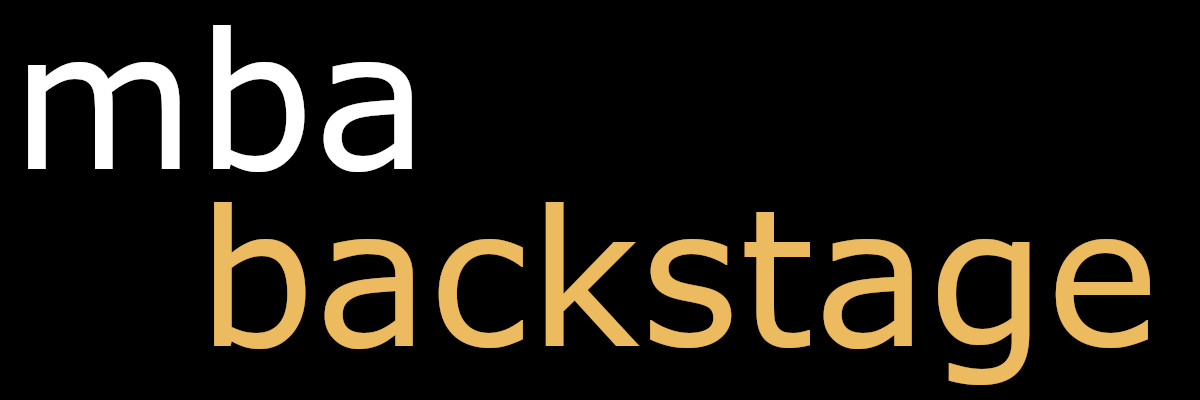To MBA or not to MBA?

We’re going to start by admitting to you something: we are jealous.
If you’re at the beginning of your MBA journey, an adrenaline fuelled adventure packed with self-development, mind-opening experiences, introspection, and new lifelong friendships, then yes – we are jealous. Don’t worry, the post-MBA life is great too, but one thing is for sure: you only do an MBA once (unless you’re a billionaire and have nothing else to do with your money), so it’s best to make the most of it!
However, no matter how incredible an MBA experience can be, so many students make the big leap without really knowing what they are signing up for, because they’ve followed advice without thinking in depth whether it applies to them or because they’ve read too many politically correct articles written by people who did their MBA over 20 years ago (or never).
All this is what led us to create MBA Backstage, a place to find information and guidance all along the business school experience. The first big question to answer: should you do an MBA?
ATTENTION! The below article is targeted at those at the very beginning of their journey. If you have already done some thinking or reading on the subject, maybe you should check out our more in depth blog posts on:
- Check whether you have the right personality for the long-term benefits of an MBA (link).
- Check whether you need an MBA for your target company or sector (link).
- Read why many people you’ll speak to in your research will be biased (link).
A classic reason for doing an MBA: a door opener for career changers
If you come from a non-business background and would like to transition into a more business-oriented environment and eventually occupy a leadership position, the MBA is usually a great choice.
Whether you come from engineering, journalism or the military, you will struggle to get a role that suits your ambitions without an MBA, and in some cases the diploma may be a mandatory requirement to get an interview, particularly for “stepping stone” roles that will help you continue your transition into the business world (e.g. for mid-level strategy consulting positions).
However, simply wanting to change career is not in itself a valid reason. You should be interested in leadership roles and particularly those that you find in typical MBA career paths.
A mandatory step for climbing the corporate ladder in some MBA-heavy professions
In some sectors, such as investment banking and consulting, some companies require you to have an MBA in order to progress past a certain level. The benefit of the MBA in their eyes is not so much the academic learnings (for most consultants the MBA curriculum will be a walk in the park), but rather the network and soft-skills development that are so crucial for some client-facing professions. The MBA also provides a glimpse of the “outside world” which allows a company to stay in touch with what’s going on but can also tempt employees not to return afterwards.
“If you are considering an MBA because you are unsatisfied with your current career and want to explore options, keep in mind that you may have to sacrifice financial ROI”
Financial benefits are not guaranteed and may only come at the expense of personal career satisfaction
If you’re doing an MBA mainly for the $$$$, think twice. Some graduates get huge returns on investments, but there are also many who don’t. Average ROIs (Return on Investment) vary from school to school, but your own ROI will only depend on your pre-MBA and post-MBA career paths.
The problem is that your post-MBA career path is not something you can fully predict. Even if you go to a top school, you may not get that dream lucrative consulting job you were aiming for or you may realize that investment banking really isn’t for you after an internship in the area. Your back-up options may be much less lucrative, and you may feel obliged to take a career path that you don’t like just for the financial returns.
If you are considering an MBA because you are unsatisfied with your current career and want to explore options, keep in mind that you may have to sacrifice financial ROI to do so.
Don’t do an MBA if you want to start a company in the next 18 months
Some schools will probably disagree, but we really don’t think you should do an MBA if your main driver is to start a company soon. Now if you are considering being an entrepreneur at some stage in your life but want to explore other options (i.e. Venture Capital – VC) that’s different. However, if you’re starting a business now and don’t plan on returning to the corporate world, there are probably better and cheaper alternatives for helping you launch your business.
It’s true that some MBAs have made significant efforts to improve their entrepreneurship offering over the past 5-10 years, and some schools will be able to provide you with some stellar classes on business plans or VC funding, along with access to some useful networks. But there are an increasing number of high-quality incubator or accelerator programs out there that provide training and networks much more tailored to what you need as an entrepreneur, and without the $100k+ entrance fee.
You need to keep in mind that an MBA provides you with a multi-disciplinary business training that is deliberately not specialized or targeted. Most of what you learn will not be applicable to new companies, but you will still have to pay for the whole thing.
To repeat, we’re not saying you should exclude an MBA if entrepreneurship is one of the options you are considering. Many MBAs start a company at some point in their career. There are benefits, for example, of becoming a founder 2-4 years after graduating. By that time you would have paid off that nasty MBA loan, gained experience in a sector of interest and may be able to mitigate the initial financial risks by doing freelance consulting on the side. On the other hand you may also have got married, had kids and lost all appetite for risk 😉 .
And don’t do an MBA for specific skills
Just as an MBA is too broad and high-level for starting a company, it is also not suitable if you’re looking for specific operational training in a field.
For example if you are fairly sure you want to go into digital marketing, an MBA won’t help you much. For that there are plenty of online hands-on courses that will teach you the operational skills you need and that you most likely won’t get in an MBA. However if your goal is to eventually become a CMO that’s different as that role requires a much more diverse set of skills.
This may seem obvious, but many career changers carry out an MBA because they are unhappy with their current job but don’t really find out what they really want to do until half-way through the MBA.
Which leads us to…
An opportunity to explore but not without financial risks
Above we looked at a few examples for doing or not doing an MBA. However there are many MBAs who don’t fit into any of those clearly defined boxes – for example people who have had a certain exposure to business so far but who want to get more out of their career or life, without necessarily having a clear post-MBA plan in mind. An MBA can sometimes be a great opportunity for them but may also be unnecessary for the career path they eventually end up choosing. They may even go back to their previous job but without much additional responsibility or financial compensation.
For this reason the true value of an MBA can sometimes only be assessed 5-10 years after graduation, and is driven much more by the personality and skills of graduates rather than their immediate post-MBA career objectives.

0 Comments